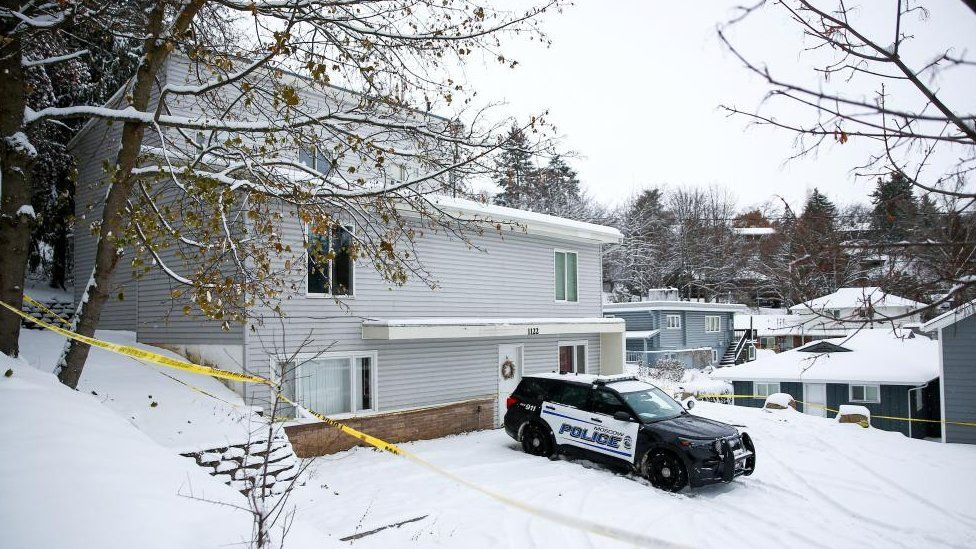ARTICLE AD BOX
 Image source, Reuters
Image source, Reuters
Police are sorting through 22,000 vehicles in their search for a car seen near the victims' home
The mother of one of four Idaho students murdered in November says she's had "sleepless nights" as fears mount that the case will go unsolved.
Kristi Goncalves' daughter Kaylee was found stabbed to death on 13 November, along with Xana Kernodle, Ethan Chapin and Madison Mogen.
Over a month since the murders, no arrests have been made and no suspects publicly identified.
Police are currently searching for a white car seen near the crime scene.
The four victims - all aged 20 or 21 - were students at the University of Idaho in the town of Moscow, which is located about 80 miles (130km) south of Spokane, Washington.
In an interview with NBC's Today show, Kristi Goncalves said she felt "left in the dark" by police about the progress of the investigation.
"It's sleepless nights," she said. "It's feeling sick to your stomach."
Ms Goncalves added that she "can't help" but fear that the murder will remain unsolved.
On Monday, police said they were sorting through 22,000 registered cars after asking the public to be on the lookout for a white Hyundai Elantra that was seen near the home on the day of the murders.
"We are confident that the occupant or occupants of that vehicle have information that's critical to this investigation," Moscow police chief Roger Lanier said in a video interview posted to YouTube.
The 22,000 vehicles that the police are aware of, Mr Lanier added, "may not be all of them".
Earlier this week, Moscow police said that an "army of analysts" is sorting through "hours and hours" of video as they attempt to piece together what happened on the night of the murders.
Some family members of the victims - as well as local students and residents - have expressed frustration at the slow pace of the investigation.
The case has also spawned the creation of Facebook groups and Reddit threads in which legions of amateur web sleuths exchange clues and attempt to decipher evidence.
Mr Lanier has called the trend a "huge distraction" for investigators, who are sometimes diverted to track down and quell rumours that are "the result of social media propagation".

 2 years ago
37
2 years ago
37








 English (US) ·
English (US) ·